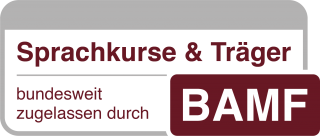Career changer | Salary | Graduation | Nursing Assistant | education
As a career changer to become a nursing assistant - All information on training, retraining & Co.
Reading time: approx. 20 minutes | Status: 08.07.2022 | Author: S. Grober | I. Tendency
Nursing professions are becoming increasingly important in Germany. The high demand for nursing assistants in the outpatient and domestic sectors also offers promising prospects for career changers. Here the qualification succeeds even without basic training. A suitable retraining or further training prepares you promptly and effectively for a job as a nursing assistant. In this article we will give you all the important information about the process, duration, training content and costs of lateral entry as a nursing assistant.
Career profile
Assistant professions in nursing have existed in Germany since the 50s and will continue to be of great social importance in the future. The life expectancy thus also aging population group experienced a constant growth. This naturally increases the rate of need for care. From the official Population pyramid for the year 2023 shows that the over 60 age group is particularly well represented. In addition, the care statistics, how many people in Germany need care and are dependent on the services of nursing homes and outpatient services. In 2019 there were 4,1 million people in Germany and a further increase in the need for care is expected in the coming years. In order to be able to guarantee the care and support of this population group, committed specialists are needed nationwide.

Since 2003, the nursing assistant professions have been regulated by state law. As a result, the training courses in the various federal states differ not only in terms of their procedure, but also the job titles vary. In Germany, for example, the profession of "care assistant" does not even exist under this name. This term is most often used in connection with a specific focus of nursing to precisely define the field of activity of the nursing assistant. The official job titles are as follows:
- (State-approved) geriatric care assistant
- (State-approved) health and nursing assistant
- (state-certified) nursing assistant (elderly or nursing)
- (state-certified) geriatric care assistant
- (state-certified) nursing assistant
- (state-certified) nursing assistant
- Health and care assistant
- Nursing and geriatric care assistant
- Health and Nursing Assistant
But apart from the terminological differences, the job description is always almost identical. The work of a nursing assistant focuses on caring for the elderly and/or the sick. Basically, they are committed to accompanying and supporting the elderly, sick and people in need of care in their everyday lives. In addition, nursing assistants use their knowledge and skills to show appreciation for patients and those in need of care and to help them lead a dignified life.
Requirements for a career in nursing
In theory, everyone has the opportunity to get involved socially and qualify for a job in the health sector. Nevertheless, some basic academic and personal requirements are expected to ensure the professional and interpersonal suitability of the future nursing assistants.
As a school requirement should at least have a high school diploma. Good spoken and written German skills are also required in order to be able to communicate properly with those in need of care and the other nursing staff and to be able to carry out bureaucratic and administrative tasks. Prior knowledge of ethics and religious studies can be beneficial as ethical and moral principles must be adhered to when dealing with clients and patients. Basic knowledge of biology and chemistry can also be helpful in understanding how certain medications affect the body. Working as a nursing assistant also includes caring responsibilities. They also take care of everyday life, organize movement exercises, creative individual or group work, games and other activities. In this respect, artistic and manual skills can be an advantage. Knowledge of home economics is also useful, especially if nursing assistants are deployed in the home. The cleaning and care of the living spaces are then usually also the responsibility of the specialists.

In order to do decent and careful work as a nursing assistant, certain personal qualities and strength of character are essential. The job requires a strong work and social behavior as well as great willingness to perform and work. After all, nursing assistants are committed to working with the rest of the staff to ensure the well-being of people in need of help. In order to achieve this goal, reliability, honesty and the ability to communicate and deal with conflict are particularly important. In addition, it takes physical endurance. Muscle strength is required in particular to support personal hygiene and to help with getting up or moving to a bed, or assisting with positioning the patient.
Mental stability is also important, since everyday working life can present difficult situations, such as in terminal care. Nursing assistants often take on the role of a mediator between patients/those in need of care and nursing professionals. For example, they have to explain necessary care measures with empathy, but also with assertiveness. A lot of empathy is needed here in order to be able to take away the doubts or fears of certain treatment methods from those affected. In addition, it is always important for nursing assistants to work in a calm and controlled manner. Even if some people in need of care behave in a confused, provocative or nervous manner for various reasons, patience must be maintained and what is said not be taken personally.
TOP 10: These ten character traits are an advantage if you want to start with a lateral entry as a nursing assistant
- empathy, resilience,
- community-led approach
- open-mindedness
- communication skills
- Care
- Confidentiality
- Patience
- assertiveness
- Conflict ability
- composure
Empathy:
= means having the ability and willingness to empathize with the feelings and thoughts of other people.
As a caregiver, you are more than just the person pushing the wheelchair or handing out medication. You are a confidante, a reference person who gains a deep insight into the individual emotional world of the patient. Give back some of that trust by addressing those individual needs.
resilience:
= understands the personal ability to avoid incorrect reactions and to act objectively, even under severe mental, social and physical stress.
Caring for someone can be absolutely fulfilling. Nursing assistants, however, have to be able to deal with all kinds of pressure: time pressure, irregular shifts, pressure to perform, and last but not least the physical stress caused by physical work.
open-mindedness:
= means openness, curiosity. Open-minded people feel a desire to learn new things and generally be open to the attitudes and thoughts of others.
As a caregiver, you deal with many different people on a daily basis. And many different people always mean many different attitudes, thoughts, emotions, moods. A basic prerequisite for interpersonal contact is to be open and friendly to them.
Communication Skills:
= refers to a person's ability to communicate effectively, constructively and consciously given the situation at hand.
As a nursing assistant, a large part of your day-to-day business consists of communication: communicating with your patients, with their relatives or with other nursing staff. Only through communicative sensitivity can you build a relationship of trust with your patients and also ensure clarity and pleasant cooperation on all other levels of communication.
Care:
= means to work with great attention and precision.
Whether dispensing medication, nursing documentation or structuring your own daily work - careful work is essential as a nursing assistant.
Discretion:
= means secrecy, confidentiality in relation to a thing, but also consideration and tact.
In care situations, discretion is the be-all and end-all. After all, you are an important confidant for your patients. As a nursing assistant, you undertake to keep the information of your patients - whether medical or private - confidential.
Patience:
= refers to a person's ability to wait or endure something calmly and controlled, even if it takes a long time or is uncomfortable.
If you work with elderly or sick people on a daily basis, it is not uncommon (also due to various clinical pictures) that you have to repeat many things several times and adapt to a different pace. So patience is a virtue!
Assertiveness:
= means the power to persistently represent one's own interests, goals, wishes and ideas and at the same time to defend them fairly against resistance.
Some older people find it difficult to accept help from others and possible help. After all, we all strive for self-determination. However, as a nursing assistant, you should also be able to enforce actions that serve the best interests of your patient.
Conflict resolution skills:
= means that one is able to deal with conflicts constructively.
In your job you may have to deal with conflicts. Perhaps your patient's family does not understand why a particular treatment is necessary, or a patient is not following the house rules at the new nursing home. The motto here is: keep a cool head and resolve the conflict objectively and constructively.
composure:
= denotes the ability to control oneself.
Of course, the day-to-day life of a nursing assistant can be exhausting and stressful. Grandma Erna doesn't want to take her medication, Mr. Blume prefers not to eat broccoli and prefers chocolate pudding for lunch, and the Mouse couple love to discuss things, especially with you. As a nursing assistant, the following always applies in such situations: don't lose your temper and stay professional!
If you reflect on yourself, can you put a tick behind some of these character traits? Fantastic! Then you might be just the right candidate for the nursing assistant profession.
Nursing assistant training
It was already pointed out in the article that the official training designations for nursing assistants differ depending on the federal state. In this respect, there are also slight differences in the focus of training and the duration of the training. We have put together an overview for you below:
| State | Job Title | duration of training |
| Baden-Württemberg | State-approved geriatric care assistant | 1 year full-time, more than XNUMX year part-time |
| State-approved health and nursing assistant | 1-2 years full-time, extended duration part-time | |
| Bavaria | state-certified nursing assistant (elderly care) | 1 school year full-time, 2 school years part-time |
| state-certified nursing assistant (nursing) | 1 school year | |
| Berlin | Health and Nursing Assistant | Min. 1 year full-time, max. 3 years part-time |
| Brandenburg | Elderly care assistant | 1 year full-time, 3 years part-time |
| Health and Nursing Assistant | Min. 1 year full-time, max. 3 years part-time | |
| Bremen | State-approved geriatric care assistant | Min. 1 year full-time, max. 3 years part-time |
| State-certified geriatric care assistant | 2 years | |
| Health and nursing assistant with general orientation (gA) | 2 years full-time, max. 4 years part-time | |
| Hamburg | Health and care assistant | 2 years full-time, max. 3 years part-time (can be reduced to 1 year upon request) |
| Hessen | Elderly care assistant | Min. 1 year full-time, max. 3 years part-time |
| Nursing Assistant | Min. 1 year full-time, max. 3 years part-time | |
| Mecklenburg-Vorpommern | Nursing and geriatric care assistant | 1,5 years full-time, extended part-time training |
| Lower Saxony | state-certified nursing assistant | 2 years |
| Nordrhein-Westfalen | State-approved geriatric care assistant | 1 year full-time, max. 3 years part-time |
| Health and Nursing Assistant | 1 year full-time, max. 3 years part-time | |
| Rheinland-Pfalz | state-certified geriatric care assistant | 1 year |
| Saarland | Elderly care assistant | 1 year full-time, max. 3 years part-time |
| Nursing Assistant | Min. 1 year full-time, max. 3 years part-time | |
| Saxony | state-certified nursing assistant | 2 years |
| Sachsen-Anhalt | state-certified geriatric care assistant | 1 year full-time, max. 3 years part-time |
| Nursing Assistant | 1 year full-time, max. 3 years part-time | |
| Schleswig-Holstein | Elderly care assistant | 1 year full-time, 3 years part-time |
| state-certified nursing assistant | 2 or 3 years | |
| Thuringia | Elderly care assistant | 1 year full-time, 2 years part-time |
| Health and Nursing Assistant | 1 year full-time, 2 years part-time |
Although the training in the individual federal states differs somewhat in terms of duration and focus, the process is quite similar. In principle, the training is completed at vocational schools. The training is divided into one Theoretical and practical part. The practical training takes place in a care facility, for example a hospital, a nursing home, in the inpatient or outpatient care service. The internship placement is usually carried out by the relevant vocational school. How many teaching hours are used for the respective training phase is in turn determined by state law.
At the end of the apprenticeship, the prospective nursing assistants have to final exam place. Here they are tested in writing and in practice in order to be able to assess their suitability for the nursing profession.
Procedure and duration of retraining to become a nursing assistant
The process of a nursing assistant retraining is similar to the training path. It ensue theoretical and practical instruction, which on the state final exam and to prepare for a successful career start. In principle, retraining is considered to be a shortened training course, but nursing assistants are an exception. Since the duration of the training is not determined uniformly, the retraining period can be one to four years, depending on the region, training provider and type of teaching.
Since the process and duration of both the training and retraining are relatively similar, the question naturally arises as to whether retraining is worthwhile at all or whether training would be the better choice. A crucial difference lies in the fact that training and retraining offers are aimed at different target groups.
Training measures are generally intended for younger people who are gaining professional qualifications for the first time. They can then also apply for support measures that are suitable for students. Retraining, on the other hand, is aimed at people who already have professional experience or who can no longer do their old job for health or other reasons and are looking to enter a new field of activity. In addition, the shorter duration and the possibility of state funding are particularly attractive to those undergoing rehabilitation or people who are undergoing rehabilitation job seeking respectively unemployed have reported.
In order to be able to do a retraining, however, certain requirements must be met. The personal requirements remain the same, but advanced school or professional knowledge must be proven. These conditions are not necessarily relevant for admission to retraining, but rather for the corresponding funding. Retraining is associated with certain costs. Not only the participation fees have to be covered, but also the monthly fixed and living expenses. Instead of paying for everything yourself, it is worth taking advantage of state subsidies. However, these are only paid if there is a certain need for retraining.
- minimum age of 18 years,
- at least a high school diploma,
- completed initial training or
- Several years experience,
- existing or threatened unemployment,
- no prospects or opportunities for advancement in the learned profession,
- good future prospects after retraining.
You have already fulfilled the last point with retraining in the field of geriatric care. As we explained in the first chapter, professions in the health and care sector are not only in demand at the moment, but are also future-proof. Nursing staff is of the utmost importance to our society and will continue to be needed in the future.
Are you curious about which other retraining occupations offer good future prospects and are suitable for lateral entry? We will tell you more about this later in this article: "Alternatives to lateral entry into care"
Career change as a caregiver
Lateral entry as a nursing assistant is also possible without years of training or retraining. By taking part in a basic nursing course, you can acquire basic skills in a timely manner that will qualify you for work as a nursing assistant. No special previous knowledge is required here either. Above all, it is important to have the will and the willingness to get involved in social projects and to care for the elderly and people in need.
A basic care course is ideal for anyone who is unemployed or looking for a job and is looking for a quick and successful job placement in the care sector. In just a few months it is possible to secure the necessary qualifications and be reintegrated into the labor market. Another advantage is that such courses are offered both full-time and part-time. In addition, many educational institutes now also offer their courses online. But regardless of whether it is a face-to-face event or an online course: When choosing the training course, you should pay attention to certain quality features so that you are properly prepared for your career change as a nursing assistant. For example, your focus should not be on the shortest possible training period, but on the main focus of the training content. Qualitative training courses for nursing assistants can be recognized above all by the fact that they not only rely on purely theoretical knowledge transfer, but also offer the opportunity for internships. In addition, the lessons should cover certain thematic priorities. We will tell you in the next chapter which training content should not be missing.
training content
To ensure that you are optimally equipped for the day-to-day work of a nursing assistant, the training or qualification is very varied. The transfer of knowledge not only provides for professional instruction, but also training to strengthen social skills. Thus, high-quality nursing assistant training consists of the following main topics:
- nursing basics,
- hygienic measures,
- Prevention and application of practical nursing methods,
- Perception and observation of (age-typical) signs of illness,
- Maintenance,
- nursing documentation,
- ethical and legal foundations,
- diet and exercise in old age,
- First aid measures and
- Communication/interaction with old, (dementia) ill people and people in need of care.
During the practical training, all of the above theoretical knowledge is applied in a professional context. Now you have to prove that you not only have the theoretical knowledge, but that you can also implement it in everyday work. In addition, this practical phase offers the ideal opportunity to strengthen one's own social skills.
Duration for lateral entry
We had already clarified how long training or retraining to become a nursing assistant can take. You must expect at least one year full-time. Depending on the federal state, such participation can also take longer. In the case of basic nursing courses, however, things are quite different. Here the period of the training measure is not regulated by law. The duration is largely determined by the respective educational institution. Various factors play a role in determining the timetable: the number of teaching units, the determination of the daily and weekly hours, the choice between full-time and part-time events and the consideration of the internship period. A good basic care course lasts at least three months. This time frame is necessary to acquire both the theoretical knowledge and the practical skills.
Places of work for nursing assistants
Trained nursing assistants and qualified career changers can work in inpatient as well as in outpatient and domestic settings. In the following overview we have compiled possible work locations for you.

Nursing Assistant Salary
The salary of a nursing assistant is just as variable as the job titles in nursing assistants. Until recently, the amount of gross monthly salary varied greatly. Region, size of care facility, qualifications and work experience were important factors in salary negotiations. In the meantime, however, there has been a rethink in the nursing sector, from which both those who have learned and those who have changed careers can benefit financially. Within the framework of a nursing commission, the law on the further development of health care (Health Care Advancement Act (GVWG) renewed. In addition to quality assurance in the German care system, this provides for a gradual increase in the minimum wage for care assistants. Since April 1, 2022, the minimum wage for nursing care has been planned. Further salary increases are planned until a nationwide minimum wage for career changers (without nursing assistant training) 12,55 euros. Trained Nursing Assistantswho have completed at least a year of training, retraining or professional qualifications earn even more. For them, the minimum wage has been increased to 13,20 euros.
Note: However, the care commission is aiming for further minimum wage increases in the near future. As you can see, there are good financial prospects here!

Beginners usually have to reckon with a lower salary. However, they can also negotiate a slightly higher starting salary, depending on the additional skills they bring with them. A multiple degree, for example, earns you real plus points. With further training as a caregiver or knowledge from the commercial area, you prove your commitment and added value for the company. This commitment then deserves a correspondingly higher reward. In general, further training and years of professional experience offer good arguments for renegotiating the salary and increasing it accordingly.
Lateral entry as a nursing assistant with further training at the MIQR
Lateral entry as a nursing assistant is also possible without years of training or retraining. You can learn all the important skills of a nursing assistant in just a few months via qualifying further training, a so-called basic nursing course, so that you can start your new career well prepared. Are you interested in obtaining a qualification in the nursing field as soon as possible? Then the Central German Institute for Qualification and Vocational Rehabilitation (MIQR) is the right place for you! With us you can efficiently and sustainably Helpers in elderly care schools.

Did you know that at the Central German Institute you not only have the opportunity to be trained as a nursing assistant, but also as a care worker or everyday companion? They find out here more about this future-proof professional alternative.
Benefits of the MIQR
We attach great importance to optimal professional preparation. For this reason we do not only mediate theoretical content, but also general qualifications. In addition to valuable tips and assistance for successful learning, you will also find here Communication and application training, which will prepare you for your future job interviews. In this way we would like to promote the development of social skills and thus increase your chances of a successful and long-term reintegration into the labor market. For even better prospects in job placement, we offer you the option of our socio-pedagogical and work-psychological service. Here you can work on your character development individually and under professional guidance, practice a self-confident appearance and overcome the nervousness before the job placement.
We give you the attractive opportunity to multiple degrees to acquire. The MIQR offers you (apart from the basic care course) another training course in the field of care: further training to become an everyday companion or care worker. This can be completed in the form of an advanced course. You can find out more about this job description in our chapter: “Related activities in nursing”.
Good to know: We offer these services both as part of our face-to-face event and for the Online Nursing Assistant Training.
For more information about our training content, please feel free to contact us directly. Simply get in touch using our online inquiry form or by telephone on 0800 77 89 100.
Costs & subsidies for lateral entry to the nursing assistant
Participation in further training is of course always associated with a financial effort. How high the participation fees are, however, depends on the respective educational institute and its range of services. There are also other costs, such as the ticket or fuel price for the journey if you want to take part in a face-to-face event. In addition, training materials or work clothing for the internship may have to be paid for. But don't worry, you don't have to break the bank. Thanks to various funding programs and financial support from suitable service providers, you can finance your further training as a nursing assistant without having to strain your own wallet.
If you are unemployed or looking for a job, you have a good chance government support of Federal agency for work or job centres to claim. After approval, you will receive what is known as a education voucher. This grant will cover all of the costs you incur. You benefit from XNUMX% financial support.
Employees who want to continue their education out of their own interest usually do not receive any state support for their vocational training measure. But also for Self-payers there are various funding opportunities. This includes, among other things, a grant from the Saxon construction bank (SAB), provided that proof can be provided that an activity is being pursued in Saxony and that participation in the course costs at least 250 euros. If these conditions are met, you can be paid up to 80 percent of the total training costs.
Good to know: There are also state-specific funding programs for further training measures. It is therefore advisable to inquire in advance about the respective options in your state. To make your research a little easier, we have >here< compiled an overview page on the funding and financing options for private payers.
Working conditions after lateral entry
During an apprenticeship, retraining or the basic nursing course, you already have the opportunity to gain an insight into your later working life as a nursing assistant. Thanks to the opportunity to do an internship, you can visit various facilities and familiarize yourself with the daily rhythm of a nursing assistant. Here you can then get a more precise picture of what working hours and what tasks are waiting for you. Shift work and weekend shifts are not uncommon here. In the practical part of the training, however, you will already be familiarized with the concepts of early, late and night shifts. You will then be well prepared for real working life.
Self-employed as a caregiver
In theory, career changers always have the choice of becoming self-employed. However, it is advisable to gain some professional experience beforehand. First expand and strengthen your skills until you decide to become a freelancer. This is how you learn to be confident in what you do.
As a Freelancer You are responsible for yourself and must also take care of possible problems independently. As a freelance nursing assistant, however, you have the great advantage of being able to set your own working hours. This gives you more freedom and control in shaping your professional and private life. However, you also have to consider that as a self-employed person you not only have to perform nursing tasks, but also have to take on commercial tasks. You are now working on your own invoices, which first have to be created. Knowledge of accounting is therefore absolutely necessary.
Good to know: You can already learn the basics during your further training as a nursing assistant at the MIQR. This knowledge is dealt with as part of the general qualification. However, if you would like to acquire more in-depth knowledge of accounting, you should deal with it more specifically, for example by means of a Advanced training in financial accounting or a Qualification as IHK specialist for wage and salary accounting.
Would you like to become self-employed as a nursing assistant after your career change and acquire the necessary commercial skills? Then the MIQR is the right place for you. As part of the Commercial modular qualification (KMQ) we offer you a large selection of business and commercial training courses.
Related activities in nursing
Lateral entry into care is not only possible through retraining to become a geriatric nurse or further training to become a nursing assistant. There are also other interesting alternatives, such as lateral entry to become a caregiver. This is a part of the care sector that is becoming more and more relevant. everyday companion represent a valuable addition to the healthcare system. They do not take on any nursing activities, but rather help and motivate old people and those in need of help in organizing and coping with everyday life. have to caregivers Although they also know about the basics of care, their work is more focused on targeted assistance in order to enable those in need of care to participate as actively as possible in social life.
The MIQR also offers you suitable further training opportunities in the area of care, such as qualification as an everyday companion/carer in accordance with §§43b, 53b SGB XI. As part of this training course, you will also be taught all the important areas of responsibility and duties of a caregiver in 10 to 20 weeks (depending on whether you are participating full-time or part-time). >Here< you will find more detailed information about this educational offer.
You can also contact us directly with your questions. We're here to help. Get in touch using our online inquiry form or by telephone on 0800 77 89 100.
Alternatives to lateral entry into care
If you are unsure whether the care sector is right for you, there are other fields of activity open to you for your professional reorientation. In our post Useful retraining and careers for career changers we will tell you which professional fields are currently in demand and where a career change is really worthwhile.
Summary
The care sector is urgently looking for socially committed and technically competent workers. Assistants are in great demand, so the chances of finding a permanent and well-paid job after training or further education are very good. In order to cover the high demand, the possibility of lateral entry as a nursing assistant is actively supported and subsidized by the state. Various training providers, such as the MIQR, offer basic nursing courses and qualifications for carers. Here, the future nursing assistants are taught all the important training content so that they are well prepared for their career start and can master everyday work competently and safely.
If you were interested in this article and would like to be informed about the Central German Institute and the latest educational offers, subscribe to our official newsletter Facebook page or follow our Instagram account.
If you have any questions about our offer or would like personal and individual advice, please send us an inquiry.





























